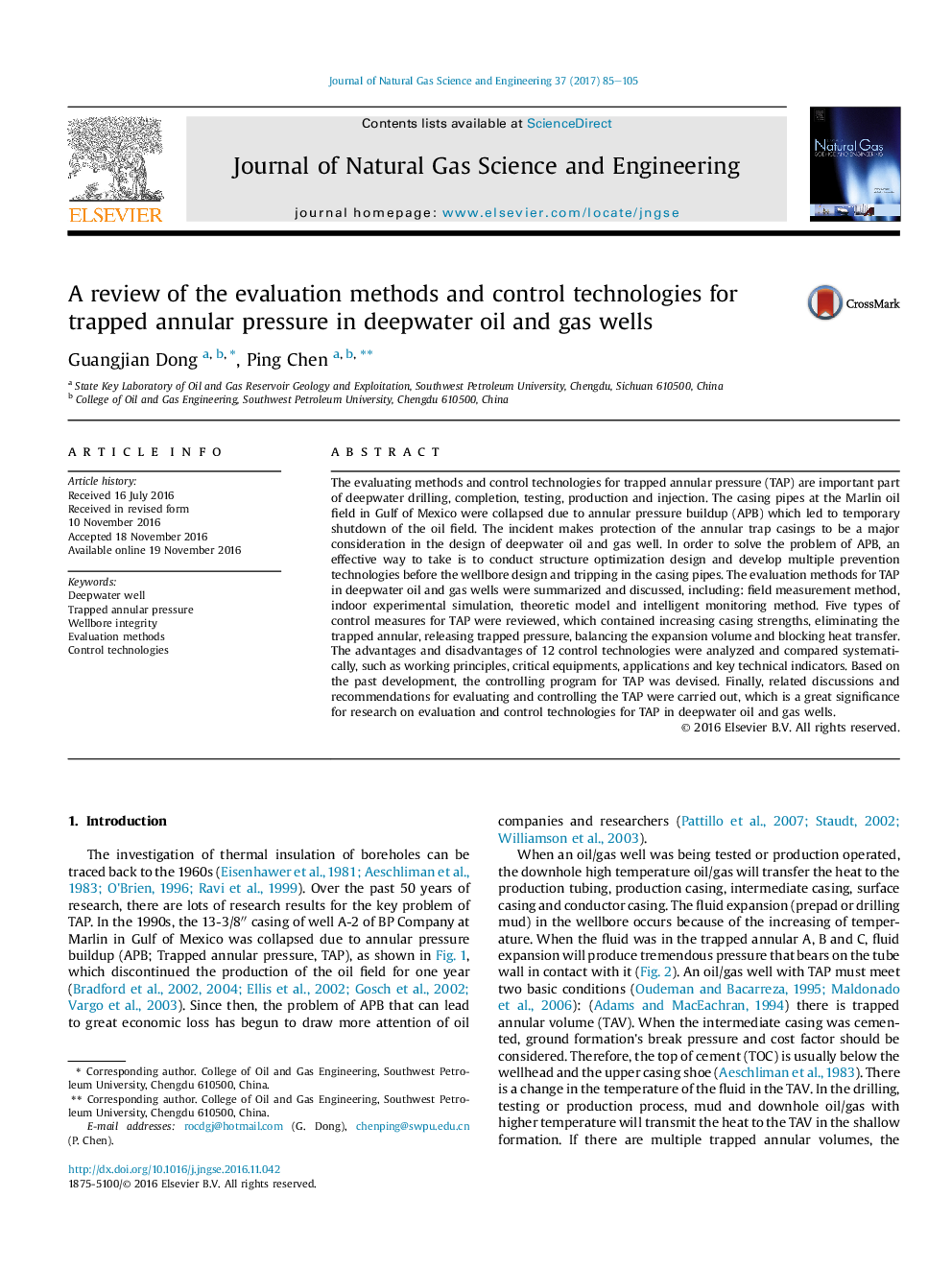| Article ID | Journal | Published Year | Pages | File Type |
|---|---|---|---|---|
| 5485206 | Journal of Natural Gas Science and Engineering | 2017 | 21 Pages |
Abstract
The evaluating methods and control technologies for trapped annular pressure (TAP) are important part of deepwater drilling, completion, testing, production and injection. The casing pipes at the Marlin oil field in Gulf of Mexico were collapsed due to annular pressure buildup (APB) which led to temporary shutdown of the oil field. The incident makes protection of the annular trap casings to be a major consideration in the design of deepwater oil and gas well. In order to solve the problem of APB, an effective way to take is to conduct structure optimization design and develop multiple prevention technologies before the wellbore design and tripping in the casing pipes. The evaluation methods for TAP in deepwater oil and gas wells were summarized and discussed, including: field measurement method, indoor experimental simulation, theoretic model and intelligent monitoring method. Five types of control measures for TAP were reviewed, which contained increasing casing strengths, eliminating the trapped annular, releasing trapped pressure, balancing the expansion volume and blocking heat transfer. The advantages and disadvantages of 12 control technologies were analyzed and compared systematically, such as working principles, critical equipments, applications and key technical indicators. Based on the past development, the controlling program for TAP was devised. Finally, related discussions and recommendations for evaluating and controlling the TAP were carried out, which is a great significance for research on evaluation and control technologies for TAP in deepwater oil and gas wells.
Keywords
Related Topics
Physical Sciences and Engineering
Earth and Planetary Sciences
Earth and Planetary Sciences (General)
Authors
Guangjian Dong, Ping Chen,
